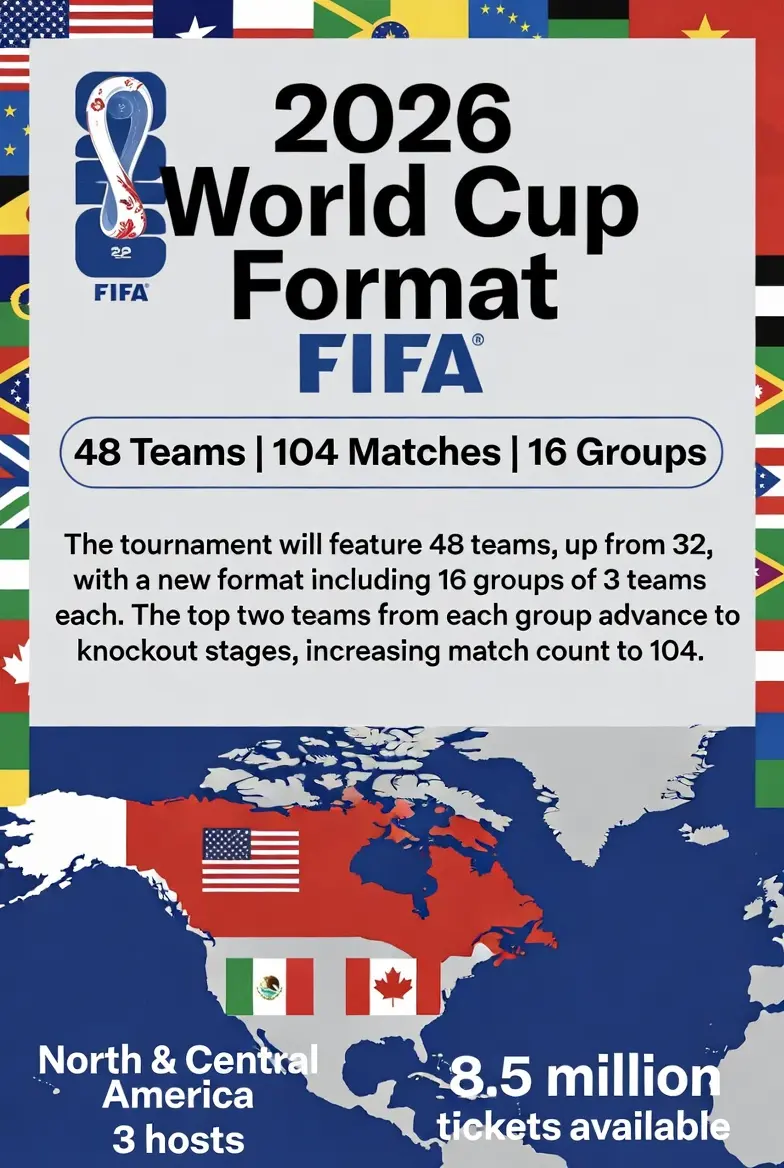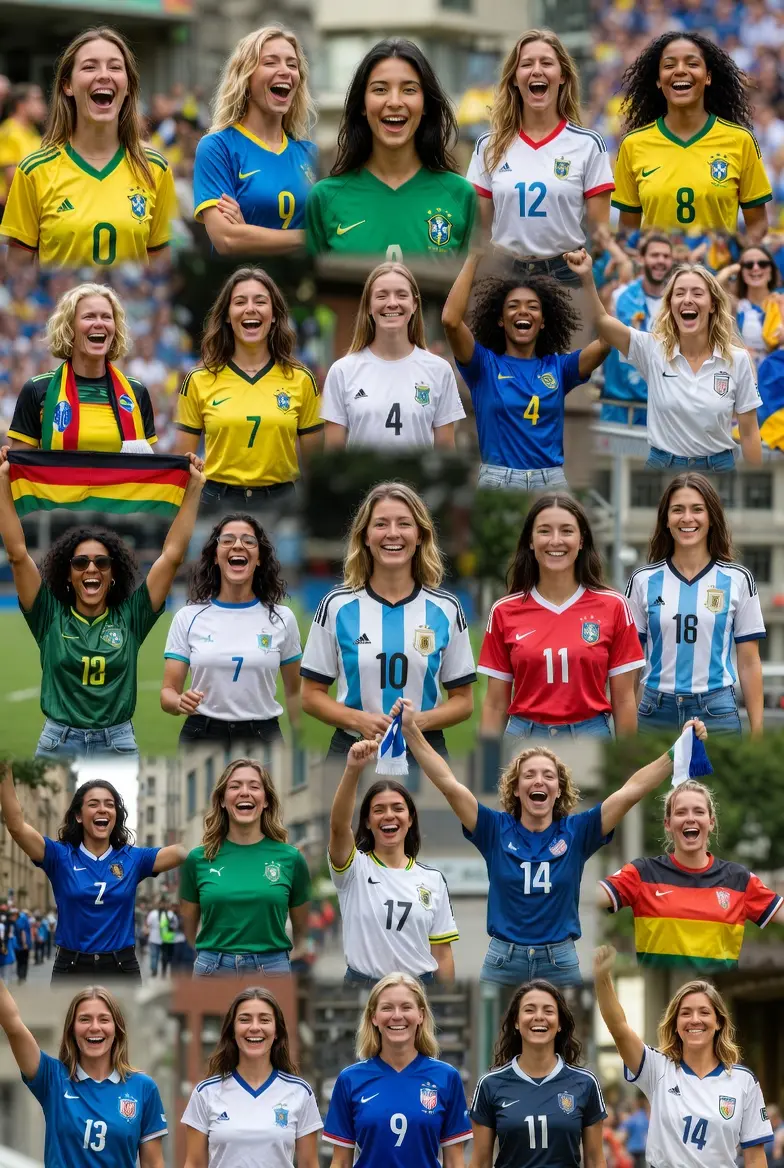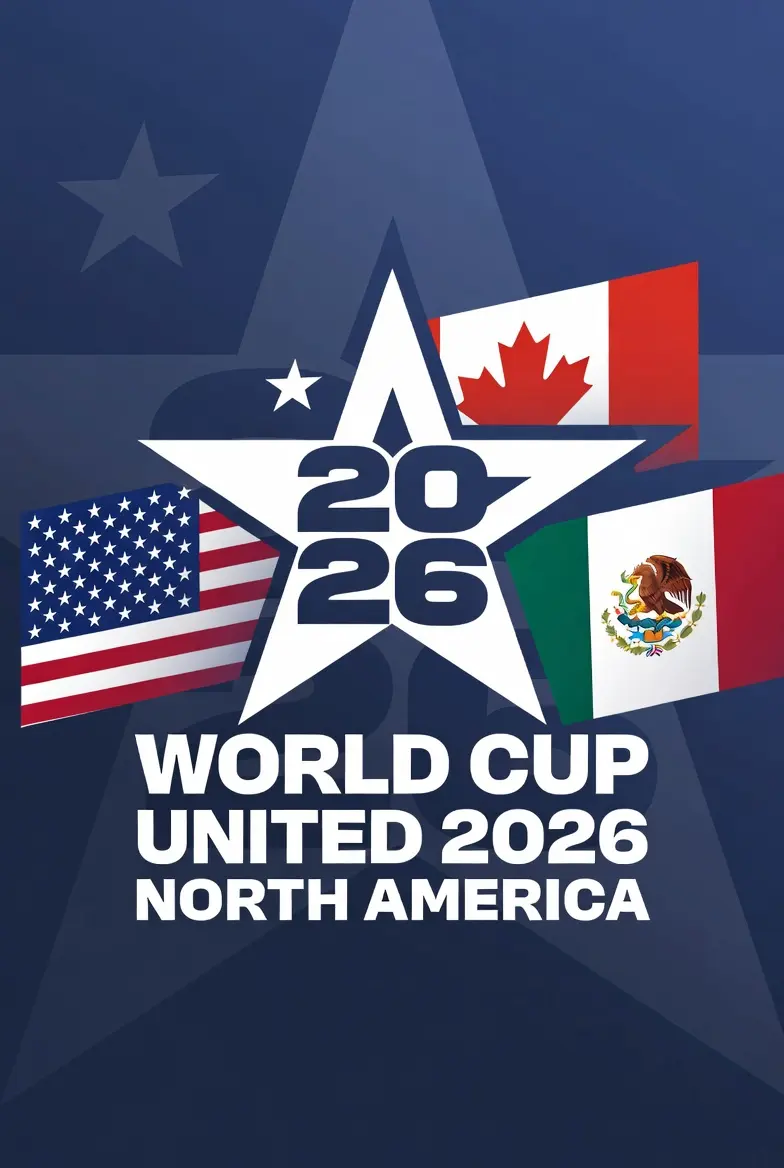To all football fans around the world, take a deep breath! The greatest football festival on Earth, which keeps us awake every four years, is returning on an unprecedented scale. Get ready for the 2026 FIFA World Cup, co-hosted by the United States, Canada, and Mexico. As of November 2025, qualifiers are reaching their climax, and excitement is building ahead of the upcoming draw. This tournament signifies more than just having three host nations. With the number of participating teams expanding from 32 to 48, it's poised to become a true global celebration, befitting the name 'World' Cup. 🤯
When and Where?: A Festival Across a Continent 🌎
The 2026 FIFA World Cup will kick off on June 11, 2026, and conclude with the grand final on July 19. For about 39 days, the entire North American continent will be ablaze with football fever. It's not only the first co-hosted tournament in 24 years since the 2002 Korea-Japan World Cup but also the first-ever to be hosted by three nations. Mexico will make history by hosting its third World Cup, following the legendary 1970 and 1986 tournaments, earning the title of the first country to host three times.
A total of 16 cities will host the matches: 11 in the United States, 3 in Mexico, and 2 in Canada. From New York on the East Coast to Los Angeles on the West, from Vancouver in the north to Mexico City in the south, it will truly be a continental journey. The opening match is set for the legendary 'Estadio Azteca' in Mexico City, while the final will be held at 'MetLife Stadium' in New York/New Jersey.
🏟️ Host Cities & Key Venues
| Country | City | Stadium | Key Feature |
|---|---|---|---|
| 🇲🇽 Mexico | Mexico City | Estadio Azteca | Opening Match, Historic Venue |
| 🇺🇸 USA | New York/NJ | MetLife Stadium | Final Match, 80k+ Capacity |
| 🇺🇸 USA | Los Angeles | SoFi Stadium | State-of-the-art, USA Opener |
| 🇨🇦 Canada | Toronto | BMO Field | Canada's Opening Match |
| 🇨🇦 Canada | Vancouver | BC Place | Iconic Dome Stadium |
*Other hosts: Dallas, Kansas City, Houston, Atlanta, Miami, Philadelphia, Boston, San Francisco, Seattle, Guadalajara, Monterrey.
A Historic Shift: Breaking Down the New 48-Team Format 🤯
The biggest talking point of this World Cup is undoubtedly the '48-team system'. The 32-team format, which had been in place since the 1998 World Cup in France, is ending after 28 years, heralding a new era. While the intention is positive—giving more countries a chance to compete on the world's biggest stage—the format has become quite complex.
📋 Key Changes at a Glance
- Group Stage: 12 groups of 4 teams (48 nations)
- Knockout Qualification: Top 2 per group + 8 best 3rd place = Round of 32 starts
- Total Matches: Increased from 64 to 104 matches
- Path to Glory: Finalists will play 8 games instead of 7
After initially considering a format with 16 groups of three, FIFA ultimately decided on 12 groups of four, largely to preserve the dramatic final-day excitement seen in the 2022 Qatar World Cup group stage. This means finishing third in a group doesn't spell the end of the road. We might see more unpredictable drama, like Portugal's journey at Euro 2016, where they advanced from the group stage with three draws as a third-placed team and went on to win the trophy.
"The total number of matches will increase to 104. For football fans, this means a month packed with non-stop action. However, it will test the physical limits of players. The cross-continental travel distances will be the biggest variable of this tournament."

Who Will Claim the Throne?: Analyzing the Top Contenders 🏆
Will a new era bring a new champion? Or will the traditional powerhouses prove their mettle? Based on current form and squad depth, here are the top contenders.
- 🇦🇷 Argentina: Will the 'GOAT' Lionel Messi play in 2026? All signs point to a potential 'Last Dance' extension. The 2022 champions remain strong, and younger talents like Enzo Fernández and Julián Álvarez have matured significantly.
- 🇫🇷 France: Led by Kylian Mbappé, 'Les Bleus' boast perhaps the strongest squad depth in the world. With world-class talent in every position like Saliba and Tchouaméni, their deep bench is a massive advantage for an 8-game tournament.
- 🏴 England: The 'Three Lions' continue their quest to bring football home. Their golden generation, featuring Jude Bellingham, Phil Foden, Bukayo Saka, and Harry Kane, is in its prime. Under coach Thomas Tuchel, they have found better defensive stability and tactical focus.
- 🇪🇸 Spain: After conquering Euro 2024, they are back at the center of world football. With destructive wingers like Lamine Yamal and Nico Williams, anchored by Rodri in midfield, they are the model of successful generational transition.
- 🇧🇷 Brazil: The eternal favorites. The destructive power of Real Madrid duo Vinícius Júnior and Rodrygo is immense. Regardless of Neymar's status, Brazil always possesses a squad capable of challenging for the title.
Icons of a New Era: Superstars to Watch ✨
As the era of Messi and Ronaldo winds down, the football world awaits the rise of new icons. This World Cup could be the coronation ceremony for the next generation of football royalty.
Kylian Mbappé (France)
A living legend who already has a World Cup title and a final hat-trick. With blistering speed and finishing, he is the top candidate for the Golden Boot.
Jude Bellingham (England)
The complete midfielder who dominates both attack and defense. A next-gen icon with both star quality and skill, he is key to England's hopes.
Lamine Yamal (Spain)
A prodigious talent defying his teenage years. After breaking records at Euro 2024, the world waits to see what magic he will bring to the global stage.
Son Heung-min (South Korea)
The heart of Korean football. In what could be his final World Cup, fans are watching to see his leadership and world-class finishing on display.
"This is too complicated!": A Glimpse into Global Fan Reactions 🗣️
With such a historic shift, reactions from the global football community on platforms like Reddit and social media are a mix of excitement and concern.
"Allowing 3rd place teams to advance to the Round of 32? Top teams might coast through the group stage without full effort. I'm worried it will reduce the tension." – A user on a global football community
It's not all negative. Many fans argue, "The World Cup is a festival for everyone. It's great that more nations from Africa and Asia can participate. Watching underdogs rise is what makes it fun." Indeed, fans from regions with increased slots are welcoming the change.
The biggest topic of debate is 'Travel Distance'. Jokes like, "Imagine playing a group game in Vancouver, then Round of 32 in Monterrey, and Round of 16 in Miami. The players might have to live on airplanes," are common. Although FIFA plans to cluster group matches regionally (East, Central, West), long-distance travel seems inevitable once the knockout stages begin.

Conclusion: Why We're Eagerly Awaiting 2026
Yes, there are valid concerns about the complex format, player fatigue, and massive travel logistics. But the 2026 FIFA World Cup holds an immense appeal that outweighs these worries. More nations will step onto the dream stage, and more touching stories will be written. New football stars will be born, and the thrill of 'Giant Killing' will be even more electrifying.
Ultimately, the World Cup is more than just a football tournament; it's a colossal festival that unites the entire world every four years. In the summer of 2026, we must once again prepare to stay up all night, to laugh, cry, and cheer. As this new chapter of history is written across North America, what drama are you hoping to see? Let's start the countdown with excitement!
